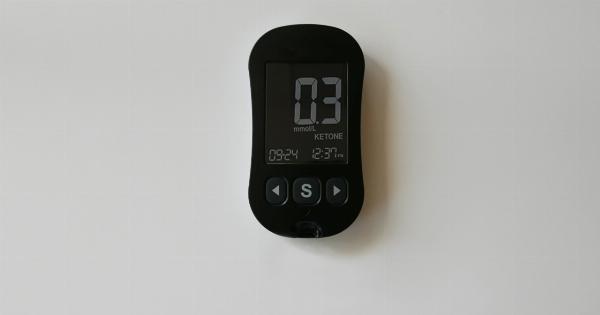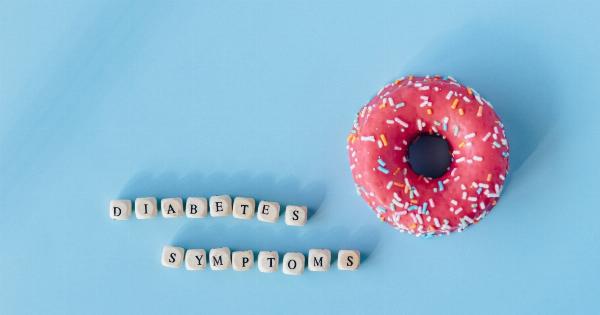When you have kidney failure, it becomes crucial to manage your diet properly. Diet plays an important role in managing kidney failure and helps to slow down the progression of the disease.
The right foods can help to reduce the workload on your kidneys and prevent complications related to kidney failure. This article will discuss the various aspects of managing your diet with kidney failure.
Understanding Kidney Failure
Kidney failure, also known as end-stage kidney disease, occurs when the kidneys fail to function properly. The kidneys play an important role in regulating the fluid balance, removing waste products from the body, and producing hormones.
When the kidneys fail to perform these functions, waste and excess fluids build up in the body, which can cause several complications such as high blood pressure, anemia, bone disease, and heart disease.
Dietary Restrictions in Kidney Failure
When you have kidney failure, it is crucial to follow a renal-friendly diet. The renal-friendly diet limits certain nutrients such as protein, potassium, phosphorus, and sodium.
These nutrients can build up in the bloodstream when the kidneys fail to excrete them properly. The dietary restrictions may vary depending on the stage of kidney failure and the individual’s overall health.
A registered dietitian can help create a specific meal plan that meets the individual’s nutritional needs and dietary restrictions.
Managing Protein Intake
One of the dietary restrictions for kidney failure is limiting protein intake. Protein is essential for building and repairing tissues, but it can also produce waste products such as urea and creatinine, which the kidneys are responsible for excreting.
When the kidneys fail to excrete these waste products, they can build up in the bloodstream, causing complications.
The recommended protein intake for individuals with kidney failure is around 0.6 to 0.8 grams per kilogram of body weight per day.
This is lower than the recommended protein intake for healthy individuals, which is around 0.8 to 1 gram per kilogram of body weight per day. It is essential to choose high-quality protein sources such as egg whites, fish, poultry, and lean meat. These sources have a high biological value, meaning they have all the essential amino acids that the body requires.
Limiting Potassium Intake
Potassium is a mineral that helps regulate fluid balance, muscle contractions, and heart function.
When the kidneys fail, they cannot regulate potassium levels in the bloodstream, which can cause potassium to build up in the body, leading to complications such as irregular heartbeats.
The recommended potassium intake for individuals with kidney failure varies depending on the stage of the disease.
A registered dietitian can help determine the appropriate intake based on the individual’s nutritional needs and degree of kidney failure. Some high-potassium foods that need to be limited in the diet include bananas, potatoes, tomatoes, avocados, and oranges. Low-potassium foods such as apples, grapes, cabbage, and green beans can be included in the diet.
Reducing Phosphorus Intake
Phosphorus is a mineral that works with calcium to build strong bones. When the kidneys fail, they cannot excrete excess phosphorus, which can lead to high levels of phosphorus in the bloodstream.
This can cause complications such as bone disease, itchiness, and calcification of the blood vessels.
The recommended phosphorus intake for individuals with kidney failure is around 800 to 1000 milligrams per day. Foods high in phosphorus such as dairy products, beans, nuts, and whole grains should be limited in the diet.
Processed foods, fast foods, and convenience foods also tend to be high in phosphorus and should be avoided.
Controlling Sodium Intake
Sodium is a mineral that helps regulate fluid balance in the body. It is also linked to high blood pressure, which is a common complication of kidney failure.
When the kidneys fail, they cannot regulate sodium levels in the bloodstream, which can cause sodium to build up in the body, leading to complications such as hypertension and swelling.
The recommended sodium intake for individuals with kidney failure is around 2 to 3 grams per day.
A low-sodium diet can be achieved by avoiding processed and canned foods, limiting the use of salt in cooking, and choosing fresh foods such as fruits and vegetables. It is also essential to read food labels to check the sodium content of packaged foods.
Monitoring Fluid Intake
When the kidneys fail, they cannot regulate fluid balance in the body. Consuming too much fluid can cause fluid accumulation in the body, leading to complications such as shortness of breath and swelling.
Therefore, it is essential to monitor fluid intake when you have kidney failure.
The recommended fluid intake for individuals with kidney failure varies depending on the stage of the disease and the individual’s overall health.
A registered dietitian can help determine the appropriate fluid intake based on the individual’s needs. It is essential to choose low-sodium fluids such as water, herbal tea, and diluted fruit juice. It is also essential to avoid high-sugar beverages such as soda and energy drinks.
Conclusion
In conclusion, managing your diet with kidney failure is crucial to slow down the progression of the disease and prevent complications.
The renal-friendly diet involves limiting protein, potassium, phosphorus, and sodium intake, and monitoring fluid intake. A registered dietitian can help create a meal plan that meets your nutritional needs and dietary restrictions. Following the renal-friendly diet can help improve your overall health and quality of life.




























